
SEO for Nonprofits: 7 Reasons to Prioritize SEO
SEO often gets overlooked due to time constraints and a general lack of understanding of its importance or how to get started. Nonprofits can especially struggle in this area, as you may not have the resources to hire an SEO expert or the knowledge to get started yourself. However, ignoring SEO can hurt your cause, and small changes can lead to big wins in site traffic.
Here are 7 reasons why SEO matters for nonprofits:
1. Popular keywords > creative original phrases.
Verbiage matters. It can mean the difference between being found or being forgotten.
Creativity is fun and can be appealing to your audience. Perhaps you are thinking of using a unique phrase that people will associate with your organization in order to stand out from the crowd. That sounds wonderful, IF you have sufficient funds to educate your audience on that unique keyword by using paid mediums to drive traffic to your website. However, most non-profits have limited funds, and by picking a keyword that no one uses, your content won’t show up in search engine results. And you will miss out on reaching a lot of potential supporters.
Case in point: One of our clients used the term ‘lesson flow’ instead of ‘lesson plan’ to distinguish themselves creatively. When we ran these terms through Google Adwords’ Keyword Planner, we found that no one really searches for ‘lesson flow’ or ‘lesson flows’. However, there was a huge opportunity to take advantage of the search volume from the keyword ‘lesson plan’.
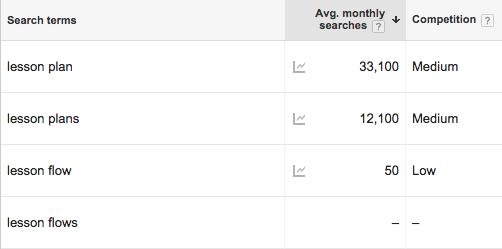
2. SEO makes content marketing cost-effective.
There is a lot of merit in understanding how your audience searches. For example: Do people search for ‘kids movies’ or ‘children’s movies’, ‘kids books’ or ‘children’s books’? Does it even matter?
As it turns out, yes, it does matter:
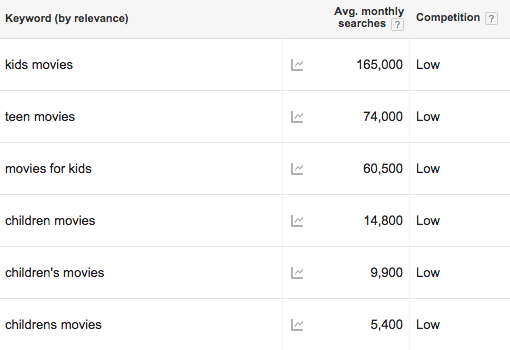
There is a significant difference in the potential traffic that you can drive to your site if you can rank for ‘kids movies’, vs. ‘children’s movies’.
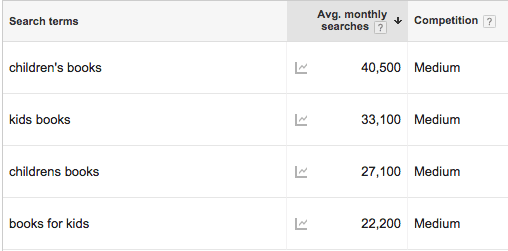
And while ‘kids movies’ is a popular search term, ‘children’s books’ is the highest searched term for books.
Keyword research can reveal interesting nuances that you might not expect. Making small changes to your site content in accordance with these nuances can help more potential supporters find your organization.
3. SEO research leads to important audience and trend insights.
As your industry changes, language evolves; new words become popular, others will diminish in popularity. Stay on top of these trends and take advantage of new opportunities by ensuring your site content is up to date, and help prevent a potential drop in site traffic.
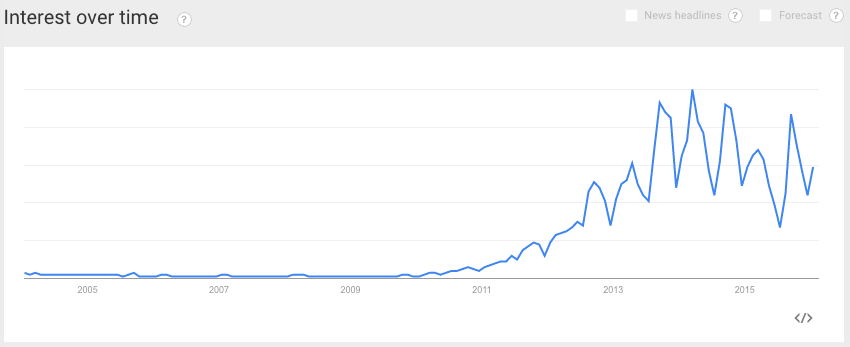
Here is an example for the education sector for the term ‘common core’. This term has gained popularity over the years but it is slowly declining and might be replaced in the not too distant future.
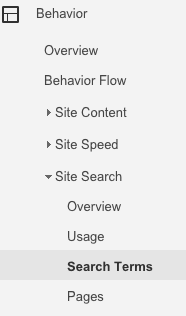
By doing keyword research and analyzing what people are searching for on your site*, you can find out which topics your audience is most interested in and how they search for them. You will most likely find new topics or new angles on topics that you are already an expert on. If you create content around these topics, you can drive organic traffic to your site from people who actually want to find your content and will likely be interested in your cause.
It also helps to think ahead, with the knowledge you have of your industry. What keywords do you expect to rise in popularity in the near future? One of our clients stays ahead of trends by looking at books-turned-movies that come out each year, and making sure their reviews are up to date and optimized for search. Those terms will likely see a significant increase in search volume quickly.
Being aware of search trends will pay dividends.
*You can find out what people are searching for on your site using the ‘search terms’ report in Google Analytics.
4. Small things can affect organic traffic to your site.
If you monitor Google Search Console (formerly called Webmaster Tools) you can find out if Google’s search spider has any issues crawling and indexing your site. It will also provide tips for resolving them.
Some general issues are:
- Google does not like duplicate content. Duplicate meta titles or meta descriptions will negatively affect your search rankings. This also means that if you have content that is republished elsewhere, this will affect your SEO.
- Meta data length: Your meta-content should be optimized to give the searcher a preview of what they can find on your site. It should be appealing to the user, but also fit within the character limits that Google allows for meta titles and meta descriptions.
- Crawl errors: If Google’s search spider is having trouble crawling your content, there could be various issues that your developer may need to address.
- Not having a sitemap. A sitemap helps Google find all of the pages in your site to make sure they are indexed. If a page is not indexed, it can’t be found, regardless of how well you optimize for a certain keyword. One way to get a specific page indexed is to submit it directly to Google Search Console*. But it’s best to have a sitemap and a good linking system so Google’s spider will crawl through all your pages without you asking.
*this also works for most social media profiles
5. SEO helps identify your highest performing content or ‘traffic drivers’.
In Google Search Console, you can find out which pages currently drive the most traffic to your site, what your average ranking position is, how many people see your site, and how many click through to your site. Review your top 50 keywords and pages. If you are ranking on the first search result page of Google, but the CTR is very low, you can try the following:
- Update your meta content to rank higher on the page and/or appeal to users to entice them to click on your content
- Update your landing page to be more relevant to the search query
You might also be ranking for some terms that don’t make sense for your organization at all. In this case, you could change some of the verbiage on that page to avoid getting unwanted traffic, and instead target an audience that would be happy landing on your page.
6. If you don’t manage your reputation, someone else might.
It is important to be aware of and in control of your search rankings, especially if your cause supports or promotes something controversial. This can typically attract passionate groups of people with opposing views. Imagine the following scenario:
An article is written with the intent of putting your organization in a bad light. Five years have passed, but the article still appears at the top of the first search engine result page when someone searches for your cause’s brand name today. You learn that press articles (whether accurate or not) can stick around for years because their main domains tend to have high credibility. You have reached out to the publisher, but they are not willing to correct or take down the article. Now you are left trying to outrank these articles on Google with new content, which proves to be a huge challenge because competing with that level of credibility takes a lot of time and effort.
Articles about controversial topics will continue to be written, and authors may or may not call out your organization specifically. This is why we encourage proactive management of your nonprofit’s reputation. Understand how you can influence the content that ranks in the top positions for your brand name, and how you can include your voice in the conversation on topics you care about.
And, most importantly:
7. You can’t change the world if you can’t be found.
Make it easy for potential supporters to find you, and use the words that your audience is using. As we mentioned above, the best way to figure out which keywords to use by doing keyword research.
If you are on top of your SEO, you can reach potential members, supporters, and donors and provide them with value that will keep them coming back to you.
Finally, SEO is an appreciating asset: it takes some time, but it will only provide more value in the future. Good SEO not only leads to traffic, it leads to more credibility and, subsequently, more links from people and organizations to your content.
Want to learn more about SEO for nonprofits? Follow us on Twitter @MediaCause or sign up for our E-Mail Newsletter. Need someone to do keyword research for your organization or have other SEO needs? Get in Touch.